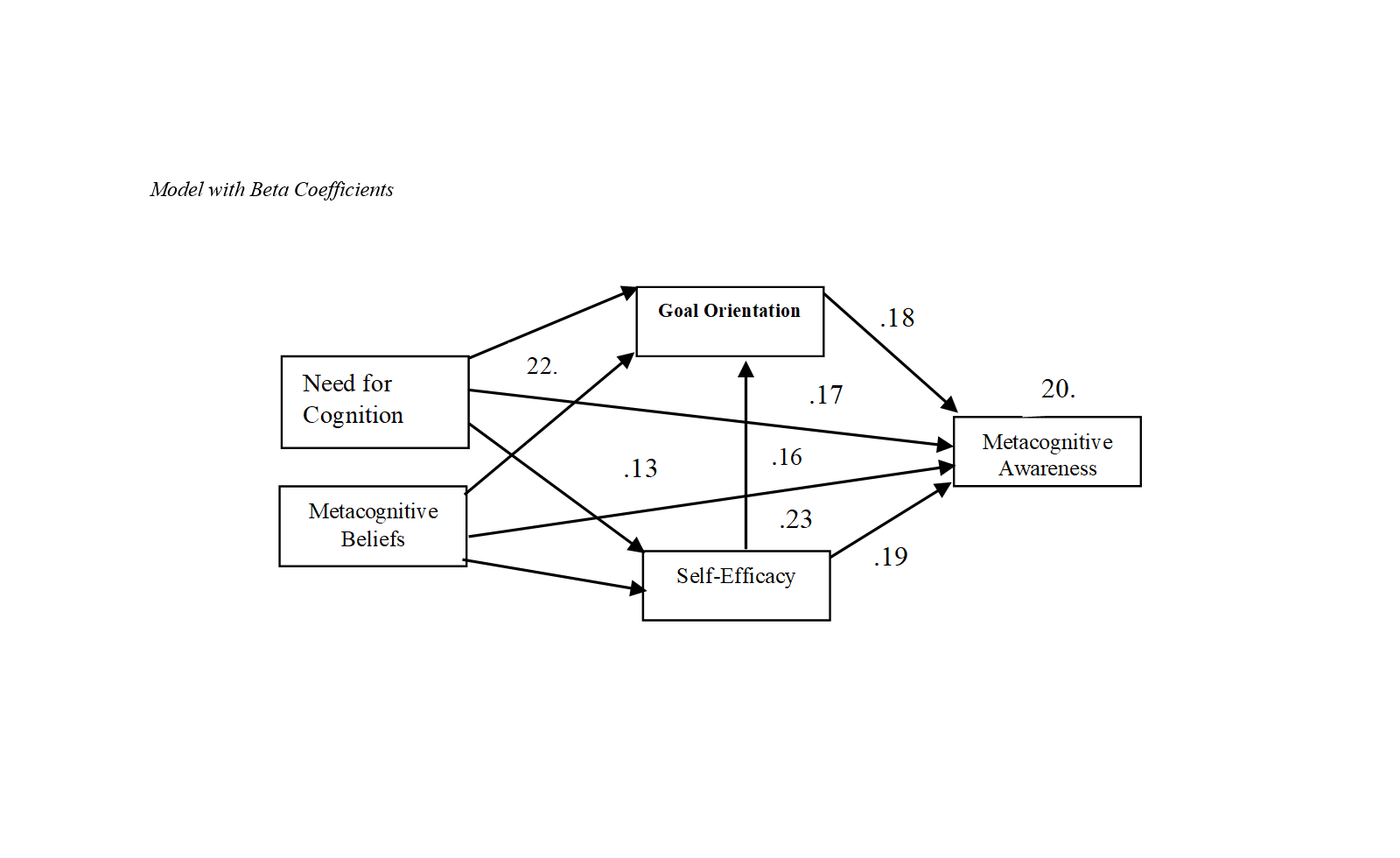Presentation of a Causal Model of Relationships Between Metacognitive Beliefs, Need for Cognition, and Metacognitive Awareness: The Mediating Role of Goal Orientation and Self-Efficacy
Keywords:
Metacognitive awareness, Metacognitive beliefs, Goal orientation, Self-efficacyAbstract
Objective: Metacognitive beliefs have significant impacts on individual performance, and enhancing and altering these beliefs lead to meaningful changes in metacognitive awareness. The present study aims to present a causal model of the relationships between metacognitive beliefs, the need for cognition, and metacognitive awareness: exploring the mediating role of goal orientation and self-efficacy in the context of students taking a general English course at Payame Noor University, Fars Province, during the first semester of 2021.
Methods and Materials: This is an applied study using a descriptive correlational research design through path analysis. The statistical population includes all undergraduate students at Payame Noor University, Fars Province, who enrolled in a general English course in the first semester of 2021, totaling approximately 3,422 students. A sample of 480 students was selected using stratified random sampling based on Morgan’s table. Data collection tools included the Bufora et al. (1998) goal orientation questionnaire, Wells’ (1997) metacognitive beliefs questionnaire, Sherer and Maddux’s (1997) self-efficacy scale, and the Cacioppo (1996) need for cognition questionnaire.
Findings: The current study indicates that the indices of the conceptual model’s fit are in an acceptable condition. The four factors of metacognitive beliefs, need for cognition, goal orientation, and self-efficacy have a significant effect on students’ metacognitive awareness. Among the internal variables, self-efficacy had the most substantial effect (0.19), and metacognitive beliefs had the least (0.164).
Conclusion: Overall, considering the goodness-of-fit indices and the overall examination of the model within the study group, the model exhibited appropriate fit and can be utilized in decision-making and policy-setting.
Downloads

Downloads
Additional Files
Published
Submitted
Revised
Accepted
Issue
Section
License
Copyright (c) 2024 Fahimeh Rajabi (Corresponding Author); Horeye Bayramnejad, Someyeh Khodarahmi, Sadegheh Salmanpour, Farzaneh Hematyrad (Author)

This work is licensed under a Creative Commons Attribution-NonCommercial 4.0 International License.








